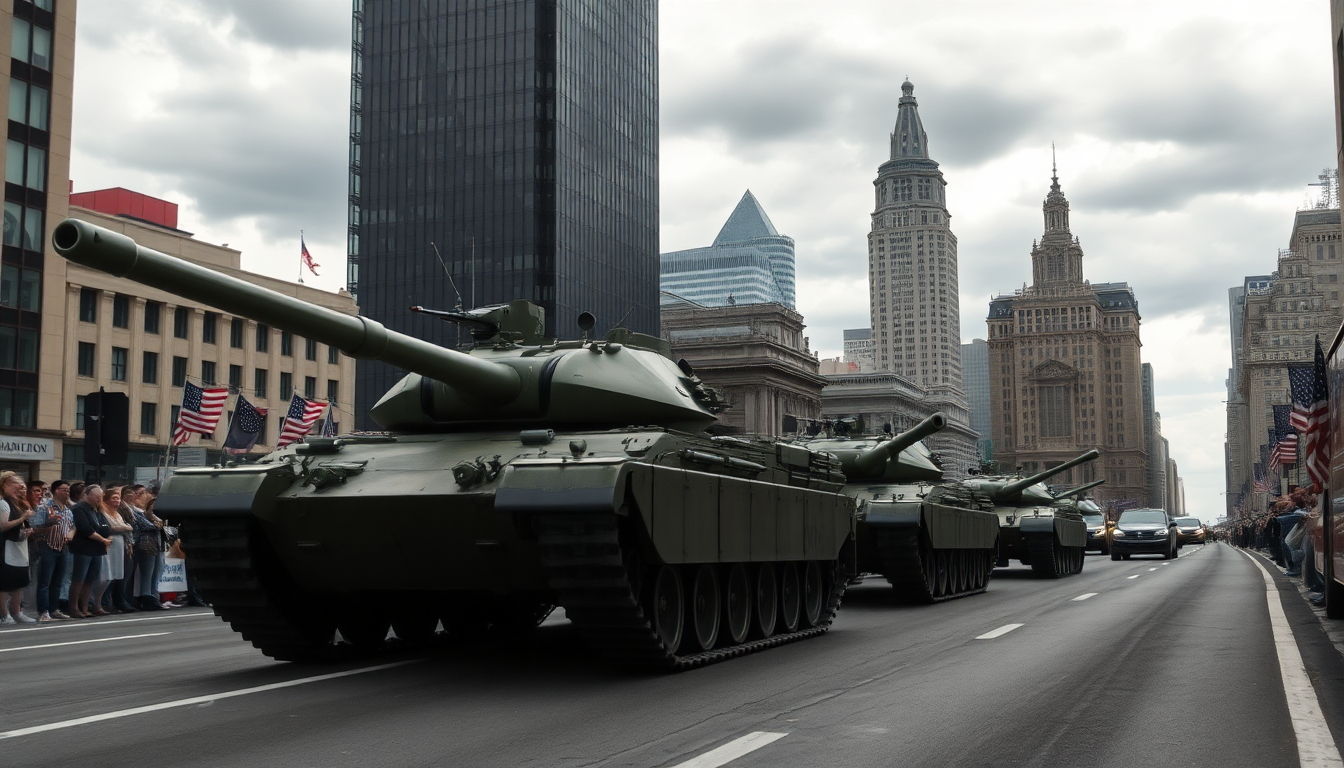Table of Contents
In a nation that often prides itself on democratic ideals, the sight of military tanks rolling through the streets feels like a scene ripped straight from a dystopian movie. Amidst political turmoil and public discontent, President Trump’s long-anticipated military parade is set to showcase not just military might but, absurdly, the very essence of a fractured American identity. As the country braces for this extravagant display, one has to wonder: is this a celebration of freedom or a grotesque exhibition of power?
The ritual dance of military might
George Orwell once likened military parades to a kind of ritual dance, a ballet of sorts that reveals the underlying social atmosphere of a nation. With Trump’s parade, the choreography is unmistakably about power—naked, unadulterated power. The event promises to be a spectacle, with over 150 vehicles, helicopters, and a staggering 6,700 soldiers taking part. But at what cost? Are we really so insecure that we need to flaunt our military prowess like some adolescent trying to impress the cool kids at school?
A reflection of America’s state of mind
Let’s not kid ourselves. The decision to hold this parade stems from a need for reassurance in an age where America’s global standing is often questioned. It’s a bold assertion of dominance, a way for Trump to remind everyone that the U.S. still wears the crown as the world’s most powerful nation. But, let’s be real—does anyone actually believe that a parade can mask the deep-seated issues plaguing this country? Issues like systemic inequality, political division, and a population that is increasingly skeptical of its leaders.
Trump’s spectacle amidst a backdrop of unrest
As the parade approaches, the atmosphere is thick with tension. Protests are planned across the nation, including right in Washington, where discontent is palpable. Trump, ever the provocateur, has warned that those who dare to protest will be met with “very big force.” It’s as if he’s trying to intimidate dissenters into silence, further solidifying the notion that this parade is less about honoring the military and more about showcasing his grip on power. The irony? A country that prides itself on freedom seems to be marching towards a celebration of militarization instead.
What does it say about us?
Orwell pointed out that military displays are only feasible in societies where the populace fears the army. In Trump’s America, are we at that point? The militarization of our streets, the presence of National Guard troops in cities, all while the president plays puppet master—it’s a disturbing trend. Historians might debate the implications of these actions, but one thing is clear: this parade is not just a display; it’s a statement about who we are and who we’ve become.
Public opinion: a mixed bag
Interestingly, a recent poll shows that nearly 60% of Americans view this military parade as a waste of taxpayer money. Yet, here we are, gearing up for a display that some see as an affront to the very principles this country was founded upon. Trump’s loyalists, however, shrug off the criticism, insisting that patriotism cannot be quantified. But isn’t it a bit rich to equate a parade with genuine patriotism? It feels more like a circus act than a tribute to the brave men and women who serve.
In the end, what does it mean?
As the parade day approaches, one can’t help but feel a sense of impending farce. Will this event become a defining moment in American history, or will it simply fade into the background noise of political theatrics? The spectacle of a military parade raises important questions about our priorities, our identity, and the very nature of power in a democratic society. So, as the tanks roll down the streets, perhaps it’s time to reflect on what we truly value as a nation. Or, you know, just enjoy the fireworks.


